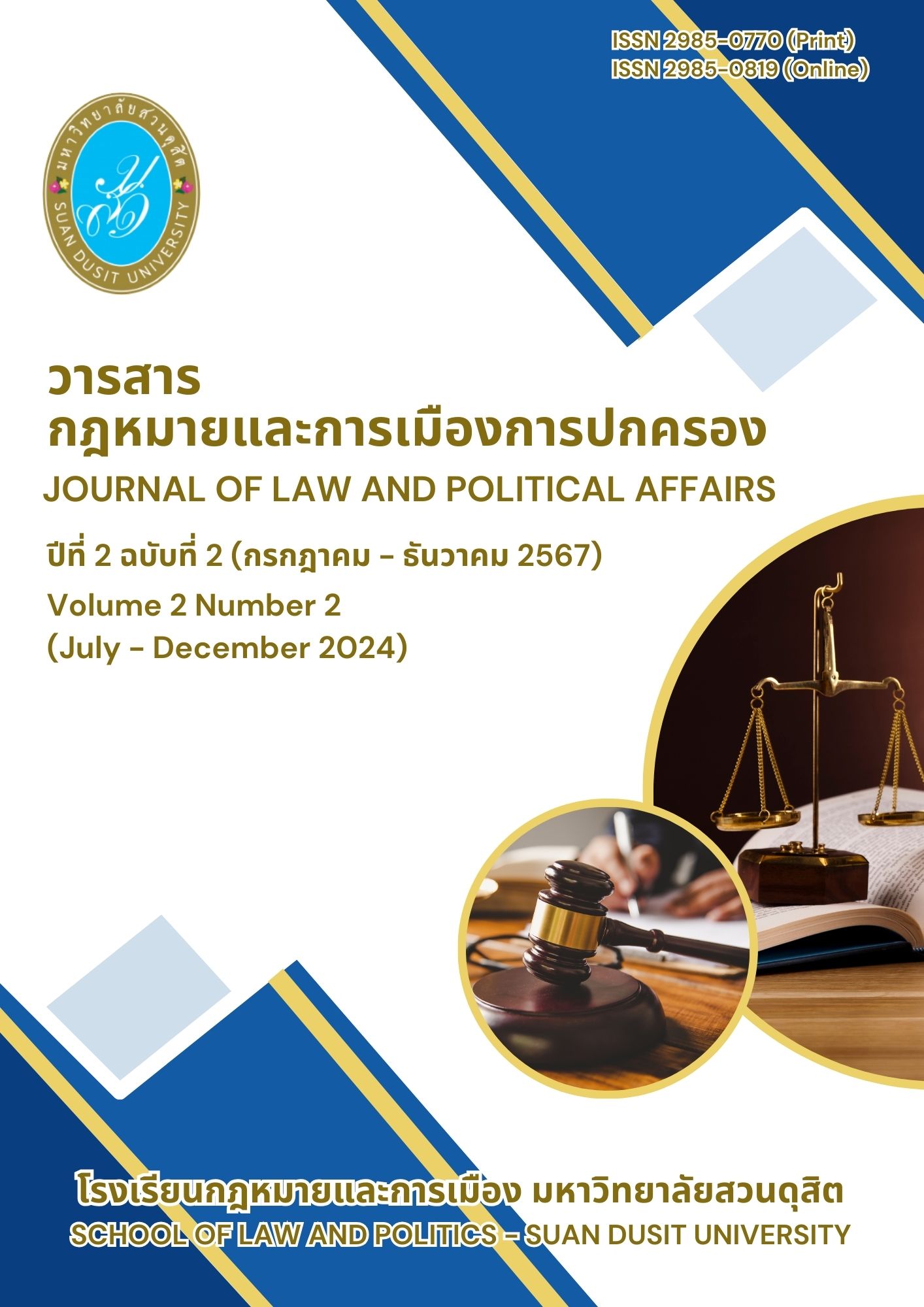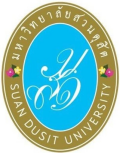Developing a legal knowledge curriculum to promote public media literacy
Keywords:
Curriculum development, Media literacy, Media lawAbstract
This research aims to develop a legal knowledge curriculum to promote media literacy among the public and to evaluate the effectiveness of the curriculum. A mixed-method research approach was employed, integrating qualitative and quantitative methods within a participatory action research framework. The research process consisted of four phases: planning, action, development, and reflection. The findings revealed that the development of the legal knowledge curriculum to promote media literacy was appropriate and coherent in all aspects. The curriculum comprised four modules: Module 1 - Media Literacy, Module 2 - Consumer Rights and Media Laws, Module 3 - Media Laws and Ethics, and Module 4 - Public Participation in Media. After implementing the curriculum through training sessions provided to 10 community-based organizations, the evaluation results showed that the average pre-training scores across all organizations were lower than the post-training scores. A statistical t-test indicated that the post-training scores were significantly higher than the pre-training scores at the significance level of 0.05.
References
ชนัญชิดา สุขทัศน์ และผุสดี กลิ่นเกษร. (2565). การพัฒนาหลักสูตรเสริมสร้างการรู้เท่าทันสื่อสังคมออนไลน์
ด้วยเทคนิคกิจกรรมการบูรณาการการจัดการเรียนรู้สำหรับนักเรียนระดับชั้นมัธยมศึกษาตอนต้น. Journal of Modern Learning Development, 7(11).
พนม คลี่ฉายา. (2559). การใช้งาน ความเสี่ยง การรู้เท่าทันสื่อดิจิทัล และแนวทางการสอนเพื่อการรู้เท่าทันสื่อดิจิทัล สำหรับนักเรียนมัธยมในประเทศไทย ระยะที่ 2: รายงานวิจัยฉบับสมบูรณ์. สำนักงานคณะกรรมการส่งเสริมวิทยาศาสตร์ วิจัยและนวัตกรรม.
สุมาลี วงษ์วิฑิต. (2565). มาตรการทางกฎหมายและการรู้เท่าทันสื่อเพื่อต่อสู้กับข่าวปลอม. วารสารกองทุนพัฒนาสื่อปลอดภัยและสร้างสรรค์, 1(3), 1-28.
สำนักงาน กสทช. (2564). รายงานผลการปฏิบัติงานประจำปี 2563.สืบค้นเมื่อ 18 พฤษภาคม 2567 จาก . https://dl.parliament.go.th/backoffice/viewer2300/web/viewer.php.
Center for Media Literacy. (2008). Literacy for the 21st century: An overview & orientation guide to media literacy education. (2nd ed.). Malibu. CA: Center for Media Literacy.
CiTS. (2022). What is Fake News. Retrieves April 4, 2024, from https://www.cits.ucsb.edu/fake-news/what-is-fake-news.
European Commission. (2018). Code of practice on disinformation. Retrieved April 12, 2024 from https://ec.europa.eu/digital-single-market/en/news/code-practice-disinformation
Heins, M. & Cho, C. (2003). Media Literacy: An Alternative to Censorship. New York: Free Expression Policy Project.
OFCOM. (2008). What is media literacy?. Retrieved April 12, 2024 from Retrieved April 12, 2024 from http://www.ofcom.org.uk/advice/media_literacy/of_med_lit/whatis/
Potter, W.J. (2004). Theory of media literacy: A Cognitive approach. California USA: Sage Publications. Potter, W. J. (2014). Media Literacy (7th ed.). London: Sage.
Potter, W.J. (2005). Media Literacy (3rd ed.). California: Sage.
Silverblatt, A. & Eliceiri, E.M.E. (1997). Dictionary of Media Literacy. Westport, Conn: Greenwood Press.
Verbruggen, Y. (2021). Fake news. Retrieves April 14, 2024, from https://www.ibanet.org/article/ 0adbdb24-c0c2-4cc8-bef8-e9b172dcf12a.
Downloads
Published
How to Cite
Issue
Section
License
Copyright (c) 2024 Journal of Law and Political Affairs

This work is licensed under a Creative Commons Attribution-NonCommercial-NoDerivatives 4.0 International License.
ลิขสิทธิ์ต้นฉบับที่ได้รับการตีพิมพ์ในวารสารกฎหมายและการเมืองการปกครอง มหาวิทยาลัยสวนดุสิต ห้ามผู้ใดนำข้อความทั้งหมดหรือบางส่วนไปพิมพ์ซ้ำ เว้นแต่จะได้รับอนุญาตอย่างเป็นลายลักษณ์อักษรจากโรงเรียนกฎหมายและการเมือง มหาวิทยาลัยสวนดุสิต นอกจากนี้ เนื้อหาที่ปรากฎในบทความเป็นความรับผิดชอบของผู้เขียน ทั้งนี้ไม่รวมความผิดพลาดอันเกิดจากเทคนิคการพิมพ์







